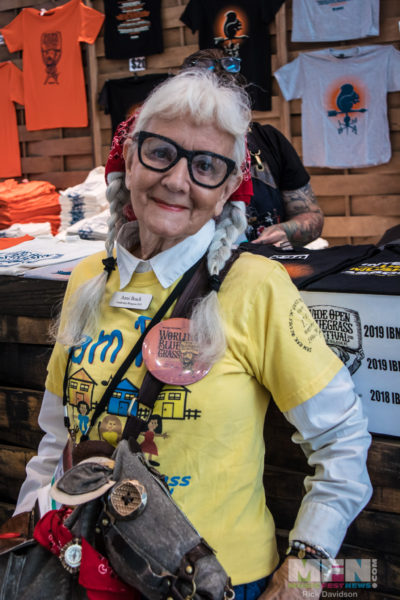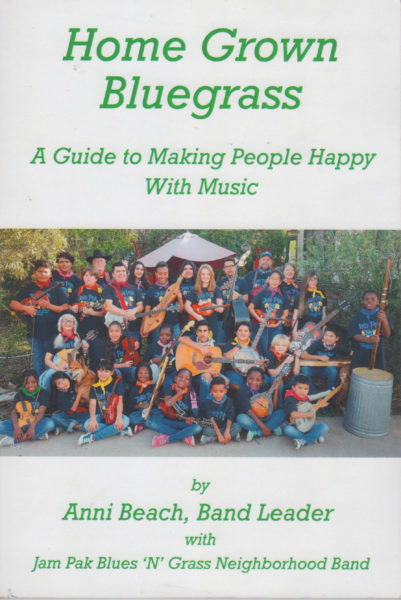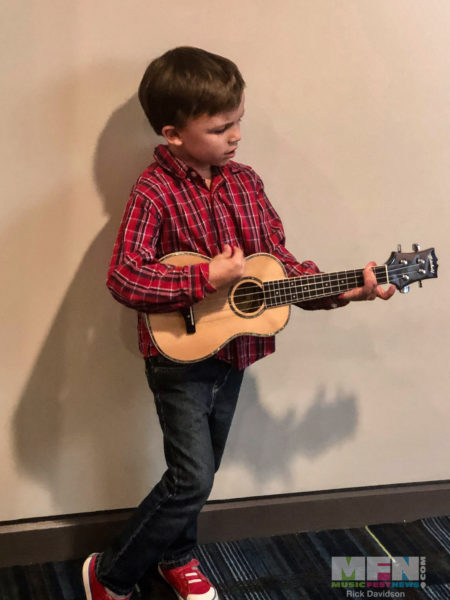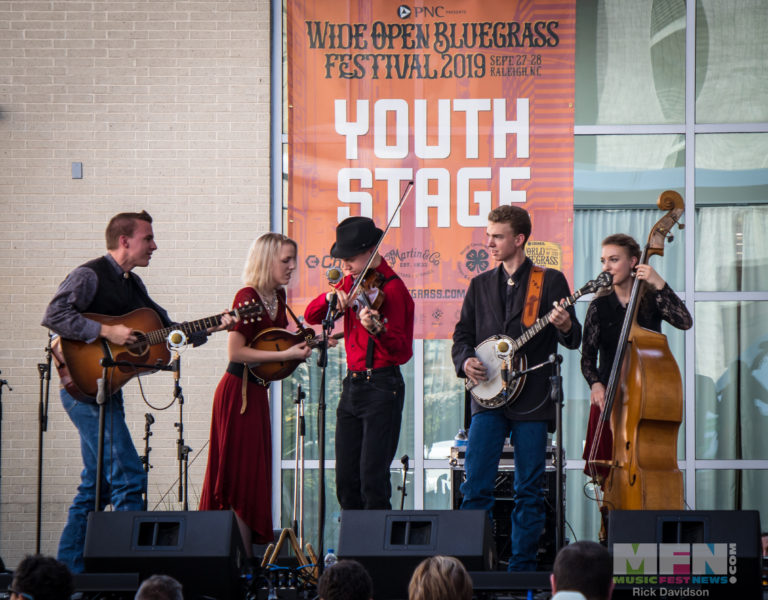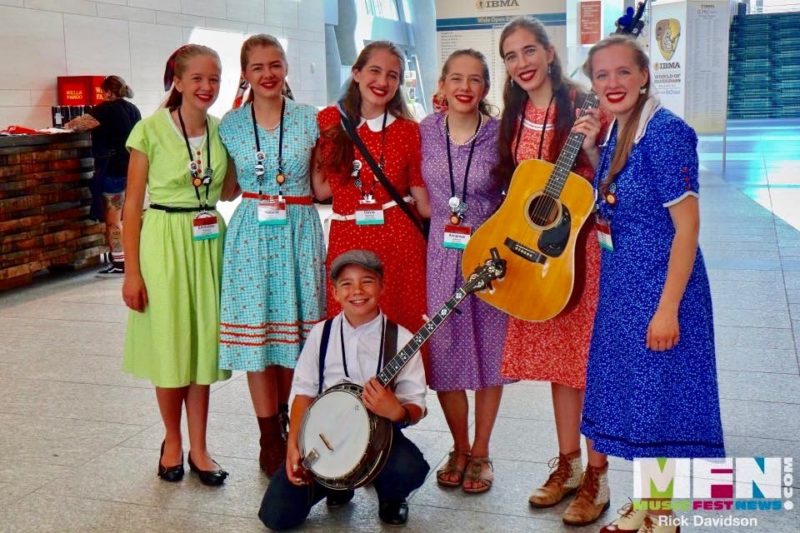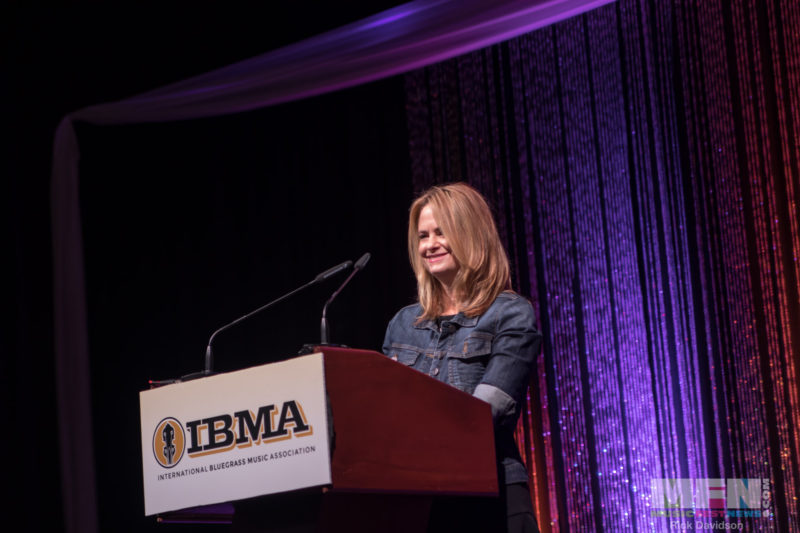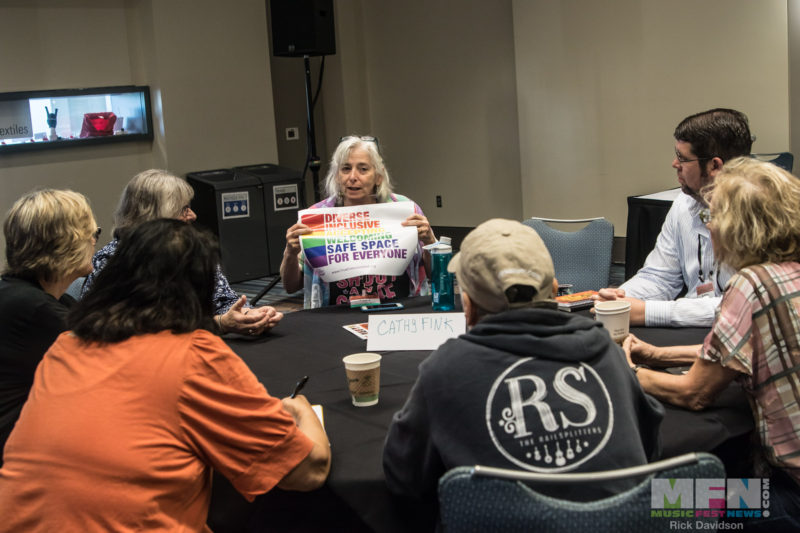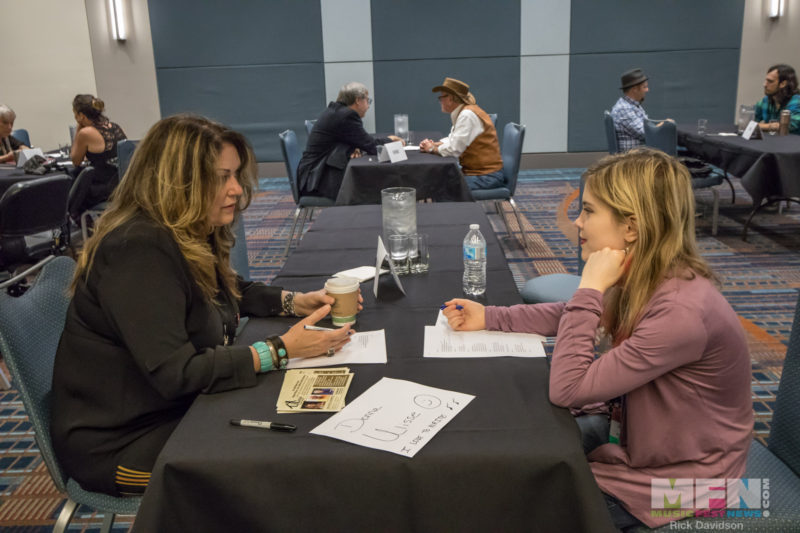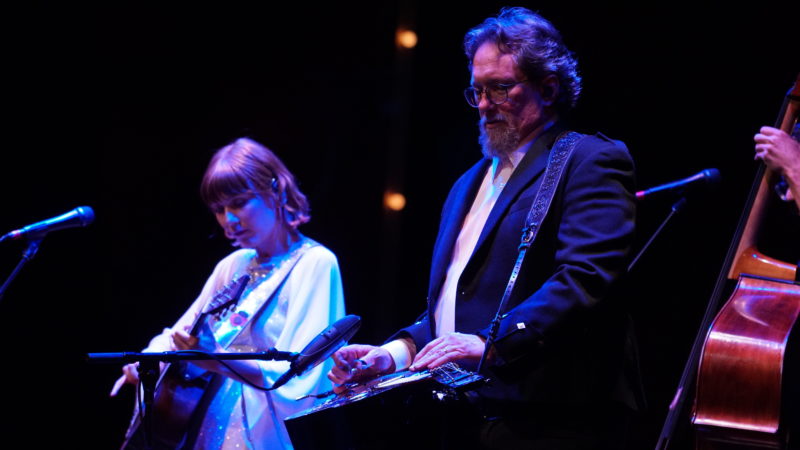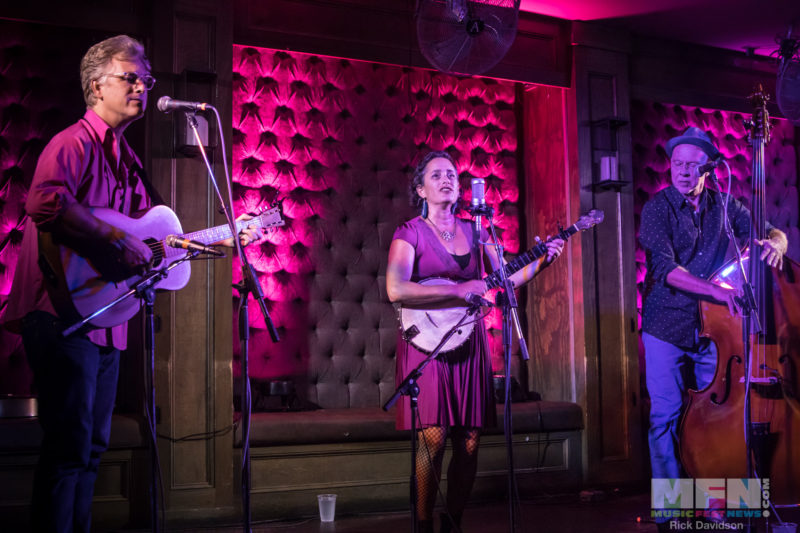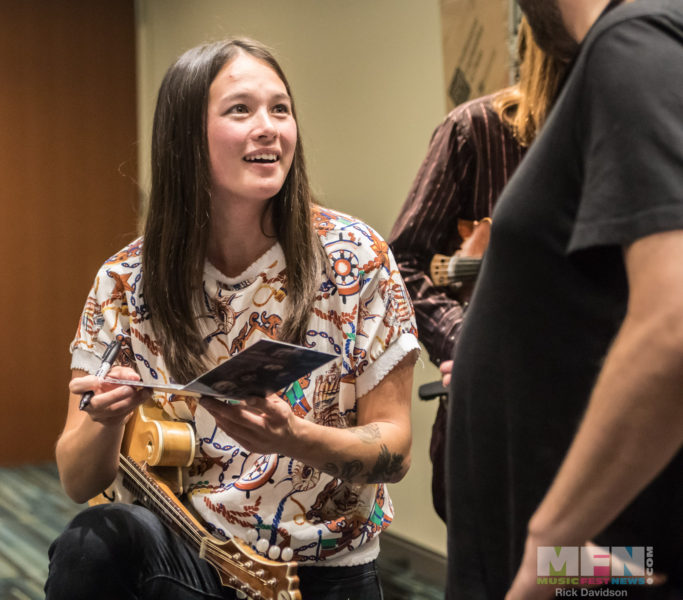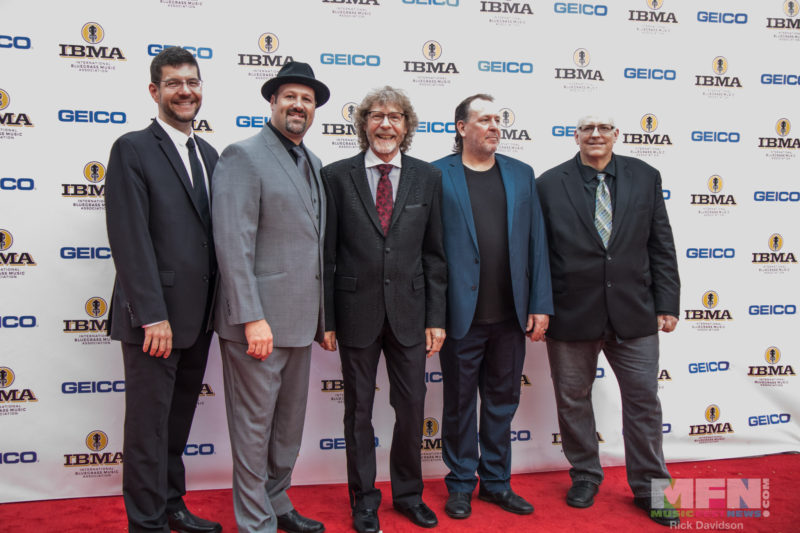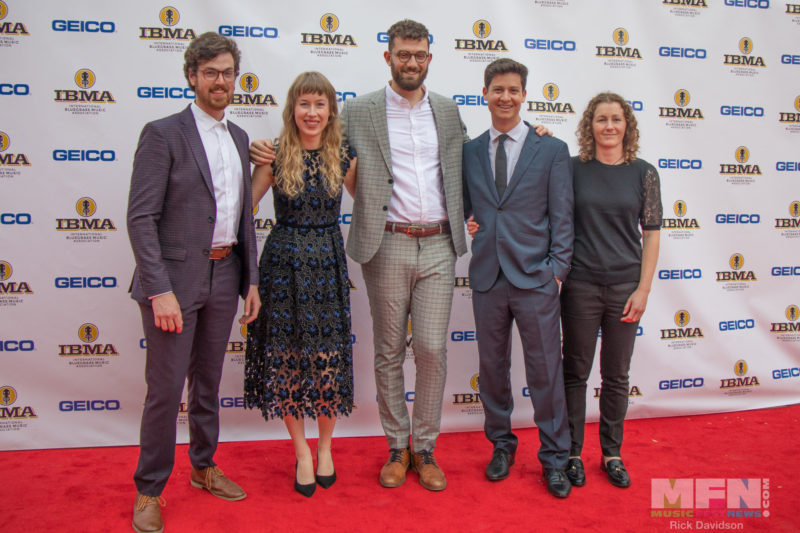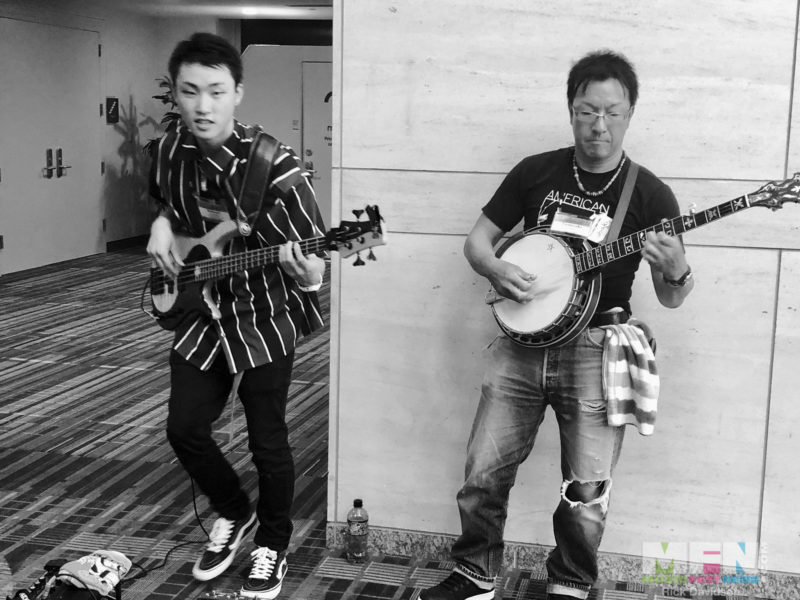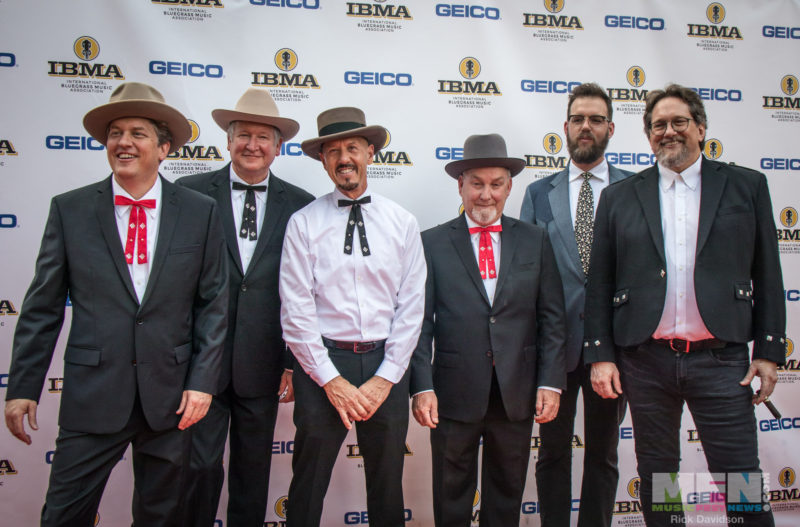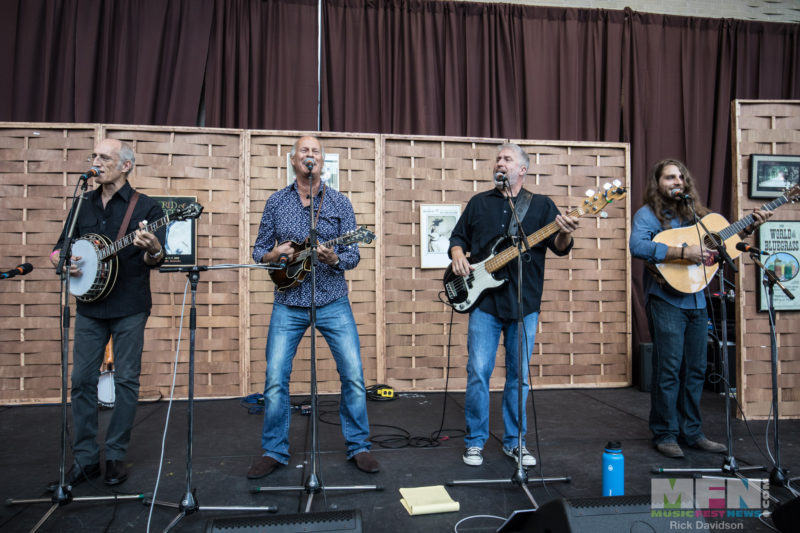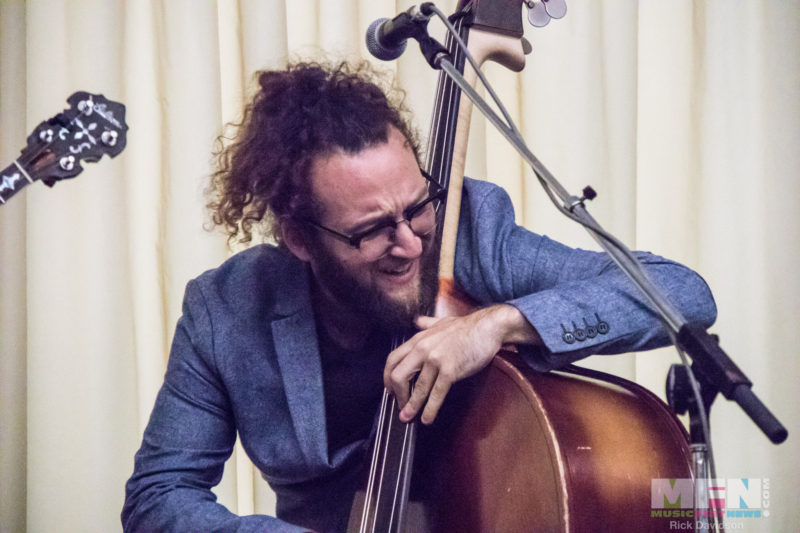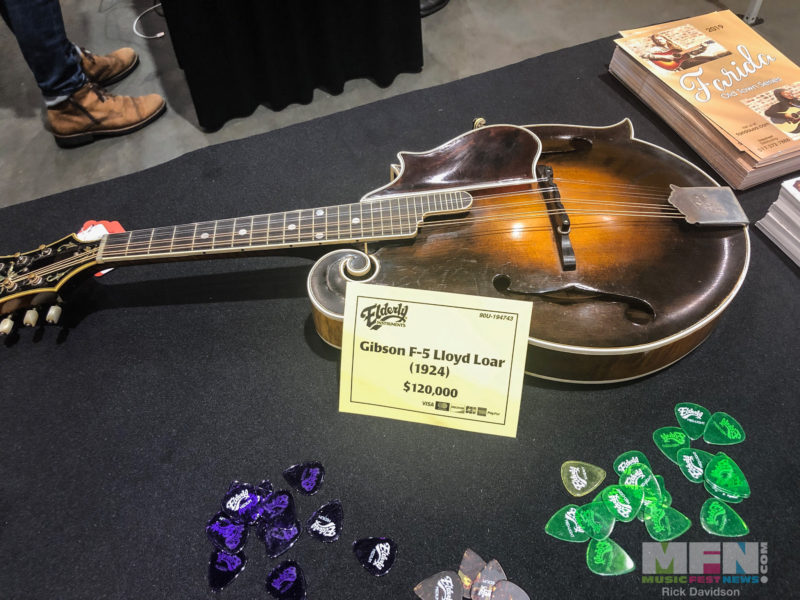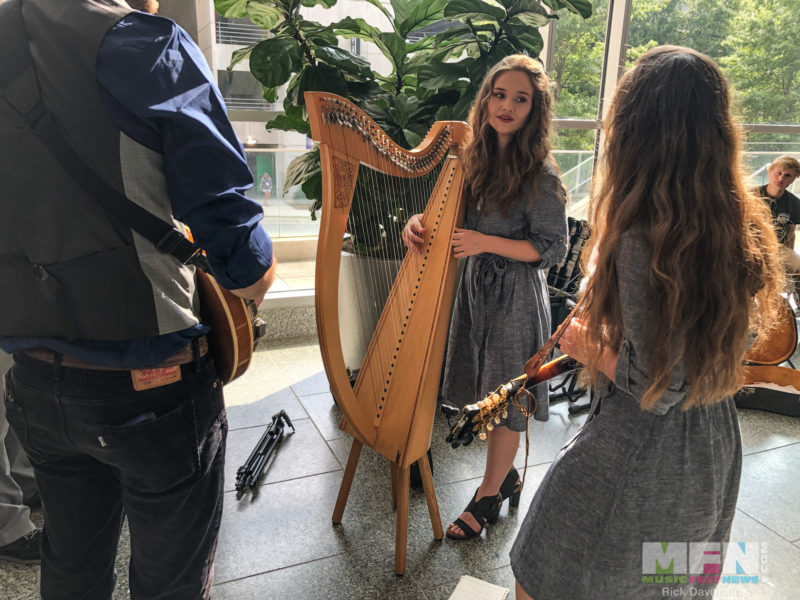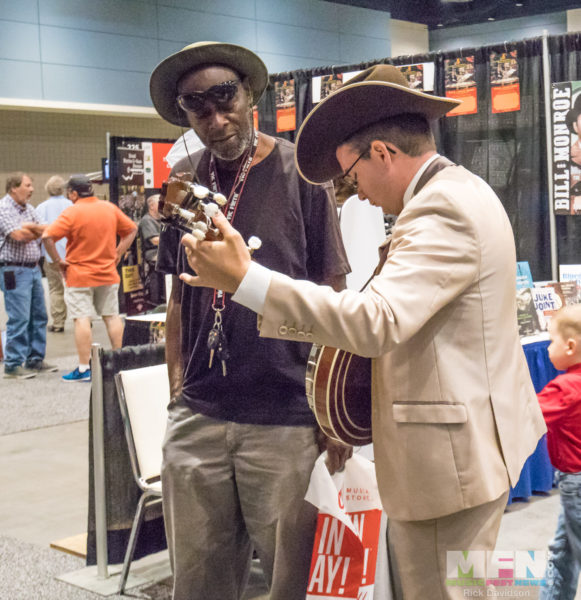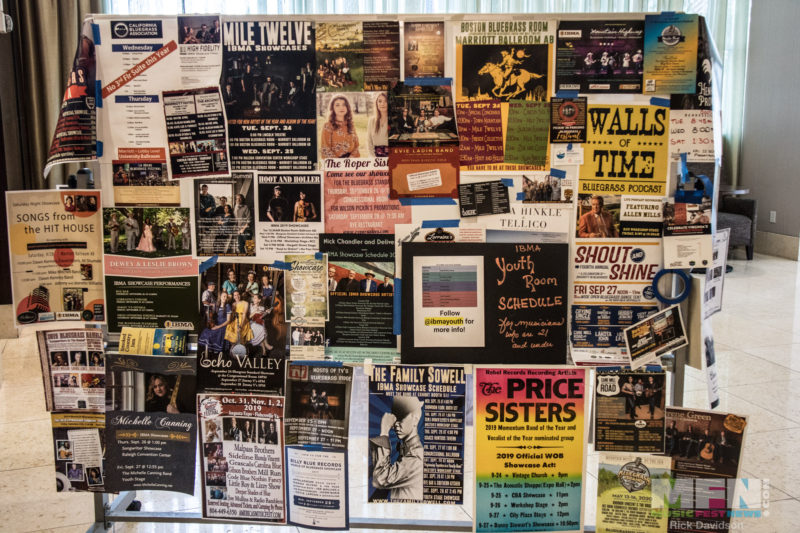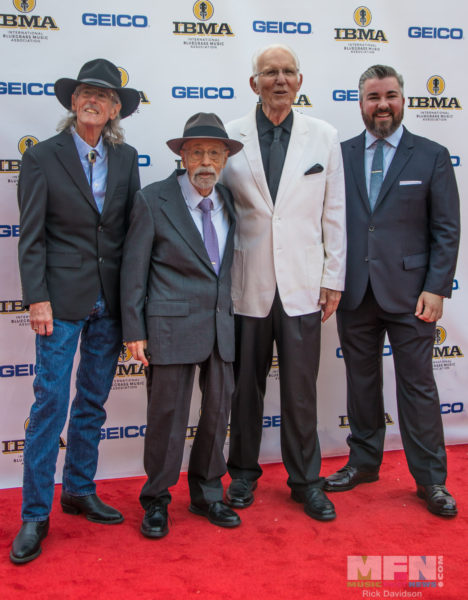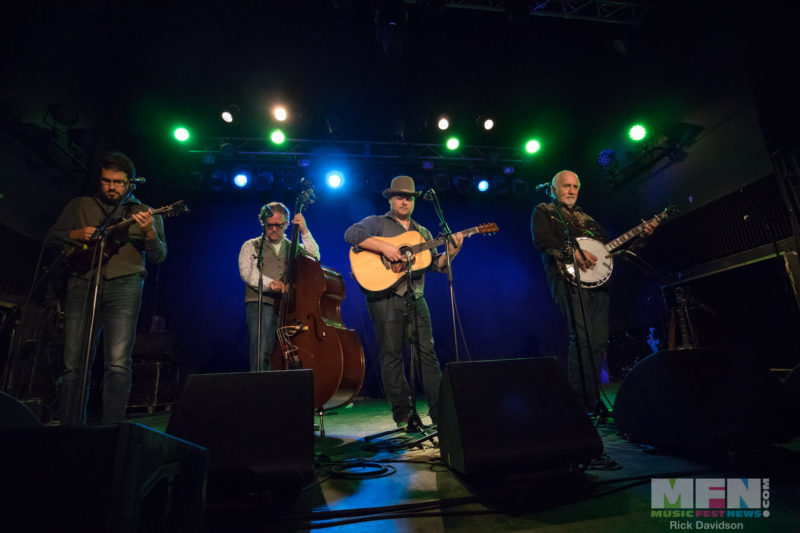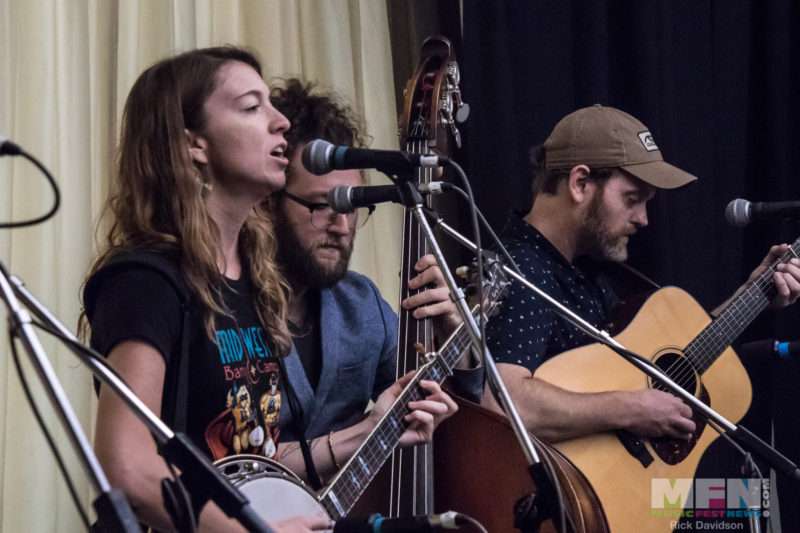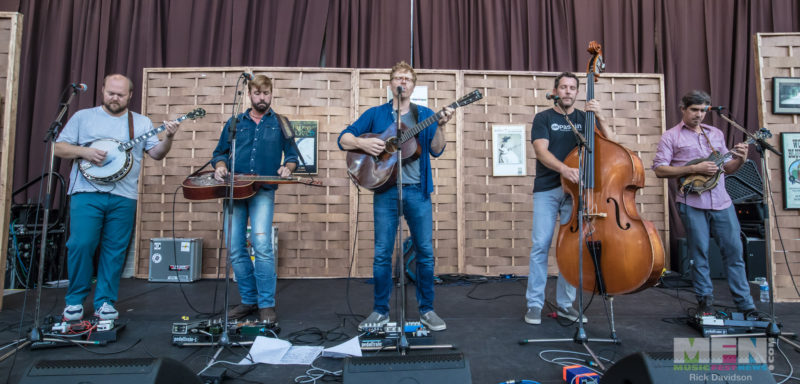
The IBMA World of Bluegrass: A Larger Tent
Living in Nashville in the late ‘60s and early ‘70s, I had a connection with the bluegrass scene. I occasionally played in bands, including at the Station Inn, which had just opened in 1975. When I moved away several years later, life and career intervened; I largely lost touch. Bluegrass music became much more popular, and in the late 80’s the International Bluegrass Music Association was formed in Owensboro, Kentucky. The first World of Bluegrass event was held in 1990 and served as a combination festival, showcase for new talent, award show and business meeting (my review of the festival can be found HERE). The event moved to Louisville in 1997, then to Nashville until 2013, when it moved to its current location in Raleigh.
The Meeting
This was my first visit to an IBMA event, and I was looking forward to seeing what happened to this relatively small and localized music genre in the past forty years or so. Bluegrass has always relied on the passion of its fans. There was a small market, relatively few nationally known bands, and a very homogeneous population of fans and performers. Almost all the bands were from the south, and many of them were composed of people that had played in Bill Monroe’s Bluegrass Boys. Flatt and Scruggs, who left Monroe’s band to start their own; the Stanley Brothers, who brought a portfolio of traditional mountain music into the field; Reno and Smiley, Jimmy Martin, the Osborne Brothers, Mac Wiseman and a few others made up the list of popular bands. The Country Gentlemen was one of the first of the early bands to revise songs from other genres into the bluegrass mold. Other than the occasional bass player (Bessie Mauldin played with Bill Monroe for over ten years), most of the performers and fans were white men.
It didn’t take me long to realize that time had indeed marched on, and the first few days of the business meetings were a Rip Van Winkle experience: things have changed while I’ve been gone. Well over 200,000 attendees were in town. The list of workshops and meetings was massive, covering everything from writing workshops, diversity, how to reinvigorate festivals, constituency meetings for broadcasters, luthiers, marketing and others, how to film concerts….it was overwhelming. There was a session on talent development that focused on Michael Cleveland, award-winning fiddle player and the topic of the documentary film Flamekeeper- The Michael Cleveland Story. The panel included his public relations people, booking agents, music management and Michael himself, discussing ways that his “team” has worked together to develop him into a historic talent that won Fiddle Player of the Year awards eleven out of the last 14 years.
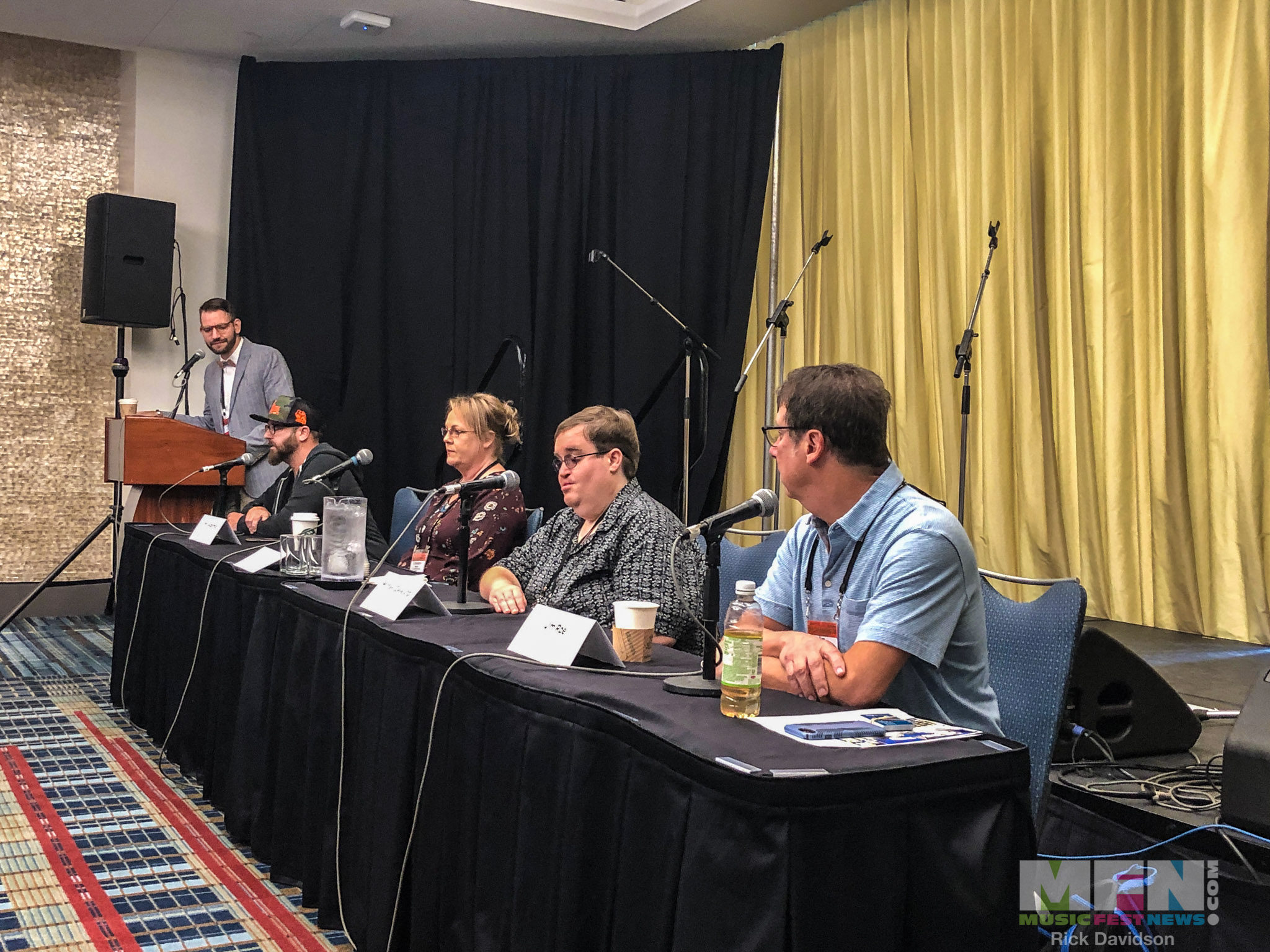
A diversity round-table discussion, with attention to LBGTQ, racial and physically handicapped issues was well-attended and eye-opening as well. This was an outgrowth of a Diversity Task Force of the IBMA. Afterwards in talking to a well-known banjo player who has been playing in a touring band for many years, I asked him if he had ever thought back in the ‘70s that a session like this would take place at a bluegrass event…his comment was “not a chance”.
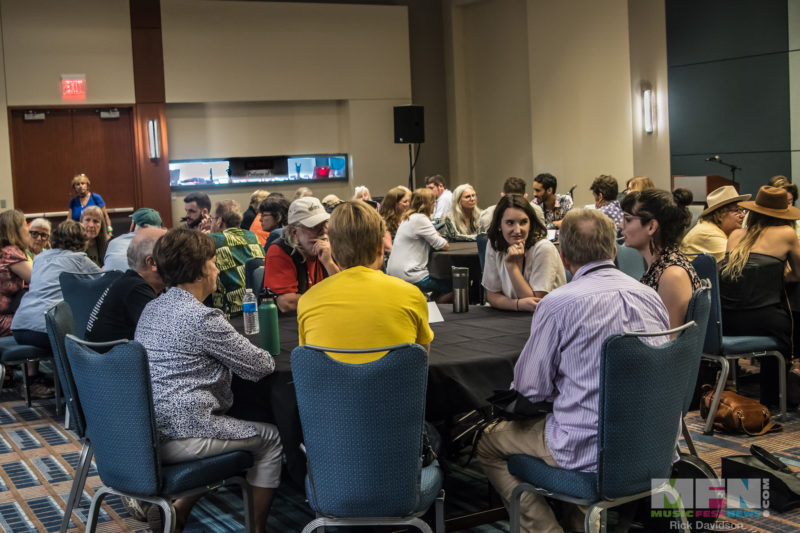
Some friends of mine were part of group hosting a songwriting workshop; enrollees could bring their own songs or questions about the business and had appointments with some award-winning songwriters to get input. “Brink” Brinkman, Louisa Branscomb, Donna Ulisse, Becky Buller and many other writers participated.
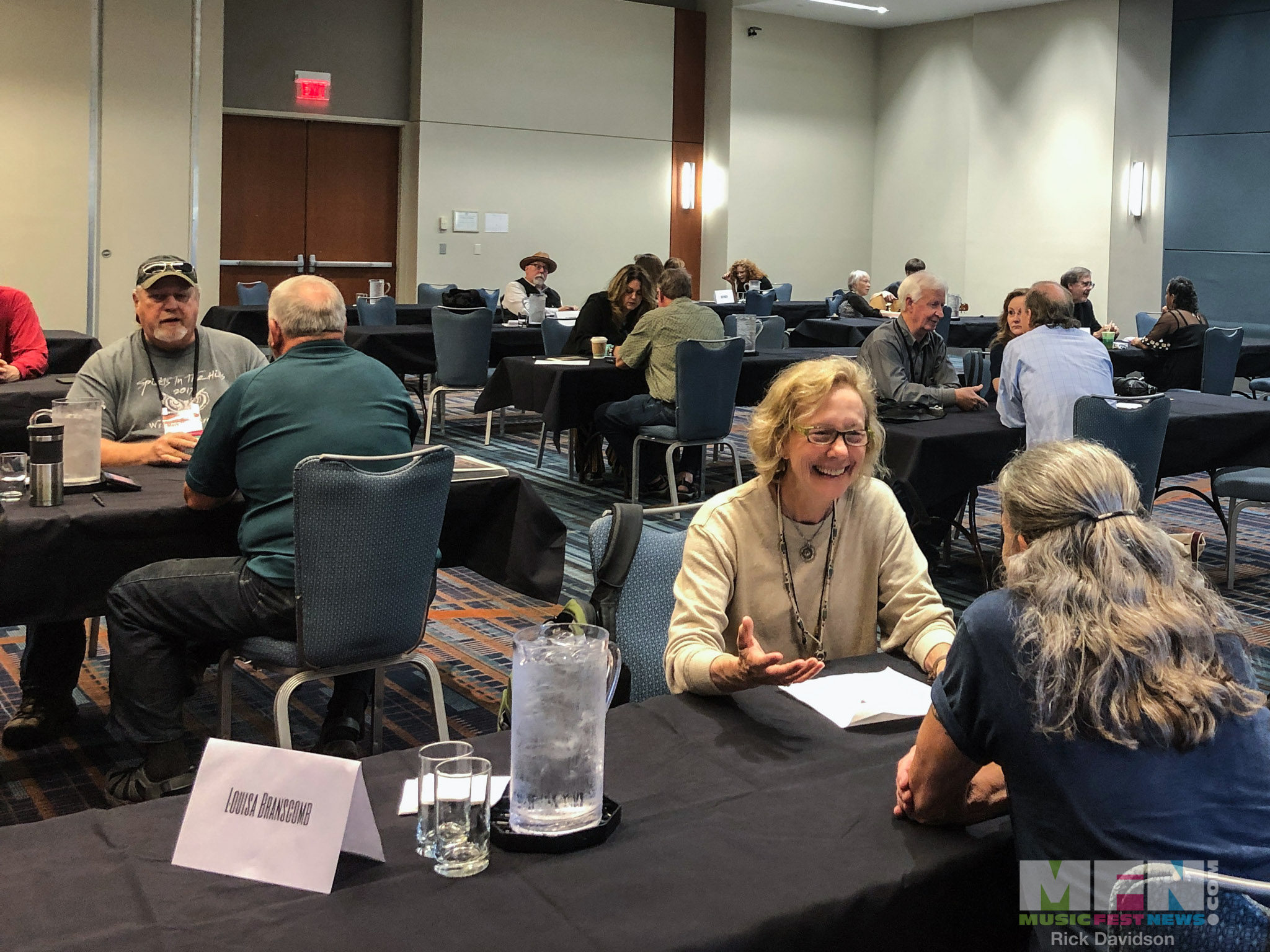
Instrument workshops for banjo, guitar, fiddle, mandolin and bass took place on the Masters stage. Banjo player of the year Kristin Scott Benson from the Grascals hosted one session.
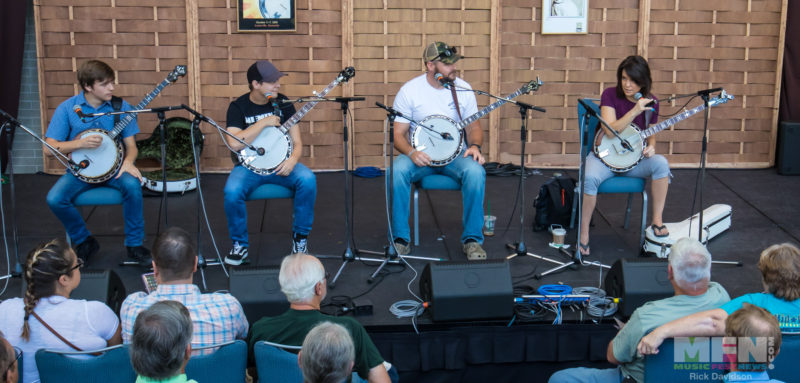
Mandolin great Tony Williamson hosted a session called “Vintage Instrument Tasting” that had a group of great performers playing a variety of vintage instruments made as far back as the ’20s. Several Lloyd Loar mandolins, two early Gibson banjos played by Terry Baucom, Tom Gray‘s carved 1800’s bass and a pre-war pair of Martins participated.
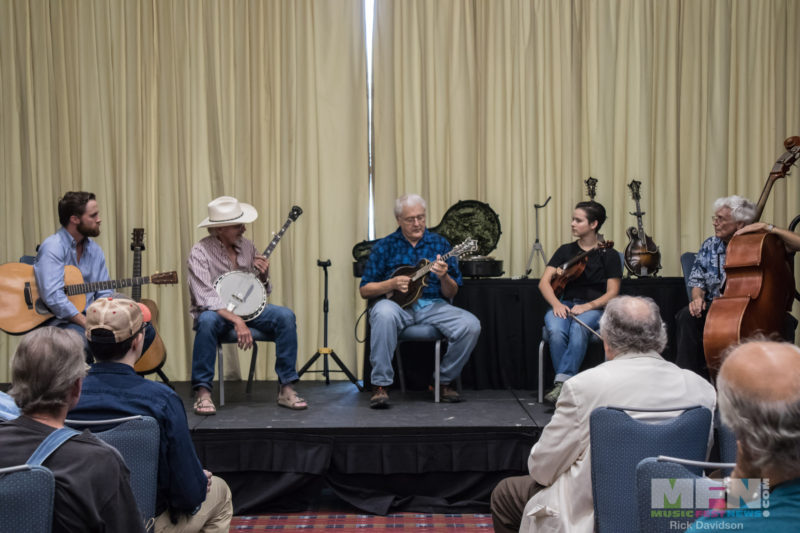
There was a giant exhibit hall with hundreds of booths, from instrument makers like Martin, to smaller makers like Collings, Thompson, Stelling and Deering. There were booths for books about bluegrass, a booth for a Bluegrass Pride organization, vintage instrument booths, custom wooden instrument stands, capos, the Folk Alliance, the new Earl Scruggs Center in Shelby, NC…and live performances and jam sessions were taking place in the hall at specific booths. For me, it was amazement and temptation at the same time.
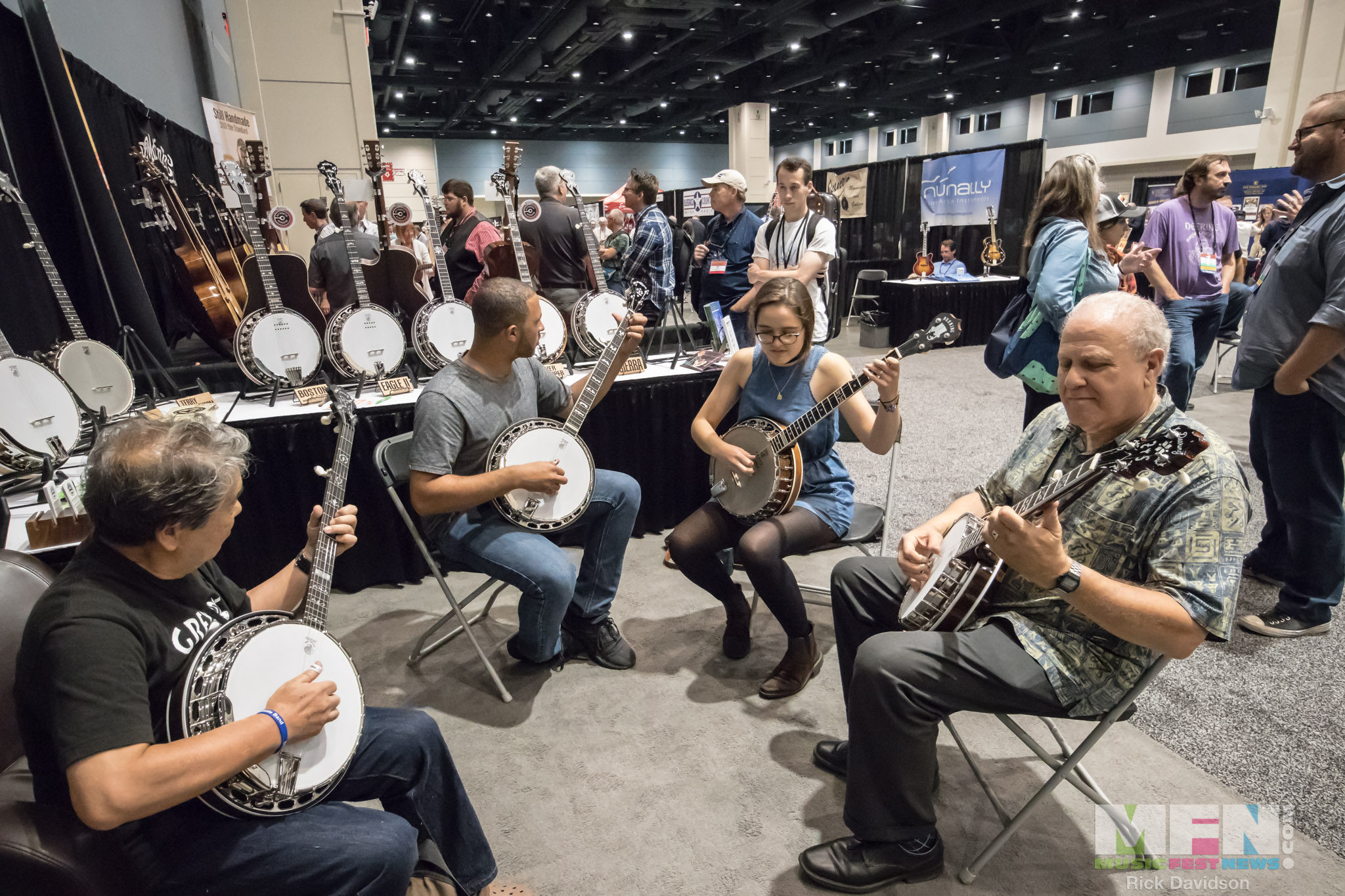
The Ramble
Along with the business meetings, there were showcases for new artists, both in the Convention Center and at seven local venues. Called the Bluegrass Ramble, all the venues were close to the Convention Center and a shuttle bus made the rounds every fifteen minutes. It was a very fan-friendly arrangement and made attending several different venues at night very easy.
There were a number of new bands that I really wanted to see. One was Blue Summit, led by AJ Lee, winner of this year’s Momentum Award for Vocal Performance, and including Sullivan Tuttle, brother of superstar Molly Tuttle. A very tight band with outstanding instrumentals and vocals, they played numerous times during the week, and were selected to play at the industry award show before the keynote speech by Alison Brown.
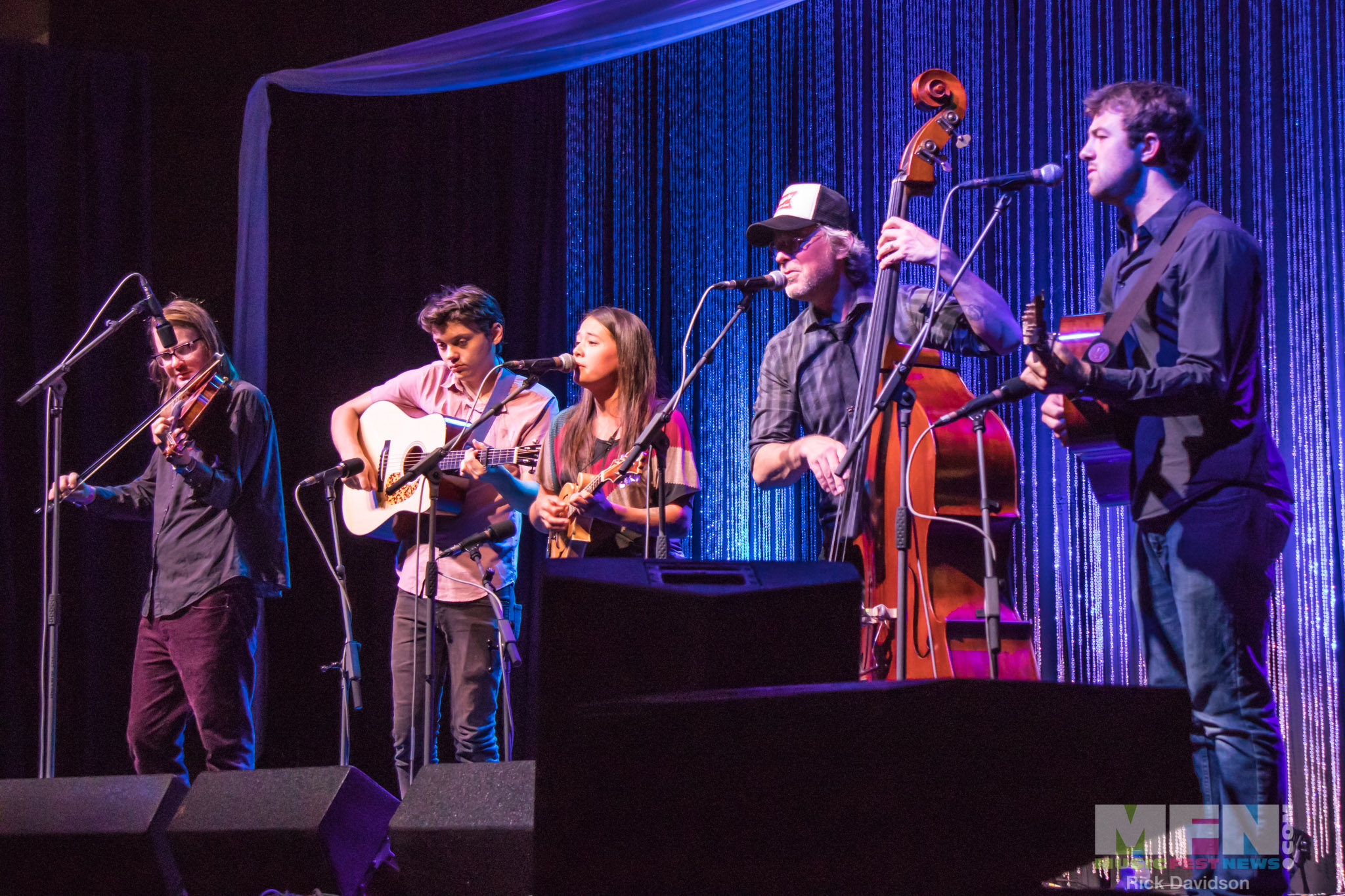
Mile Twelve won the Momentum Award at last year’s conference, and their first album, City on a Hill, is an example of the direction of bluegrass. While playing traditionally, they’ve added songs by Richard and Linda Thompson to their originals. The album, produced by Bryan Sutton, is a true collaborative effort for these Boston-trained musicians.
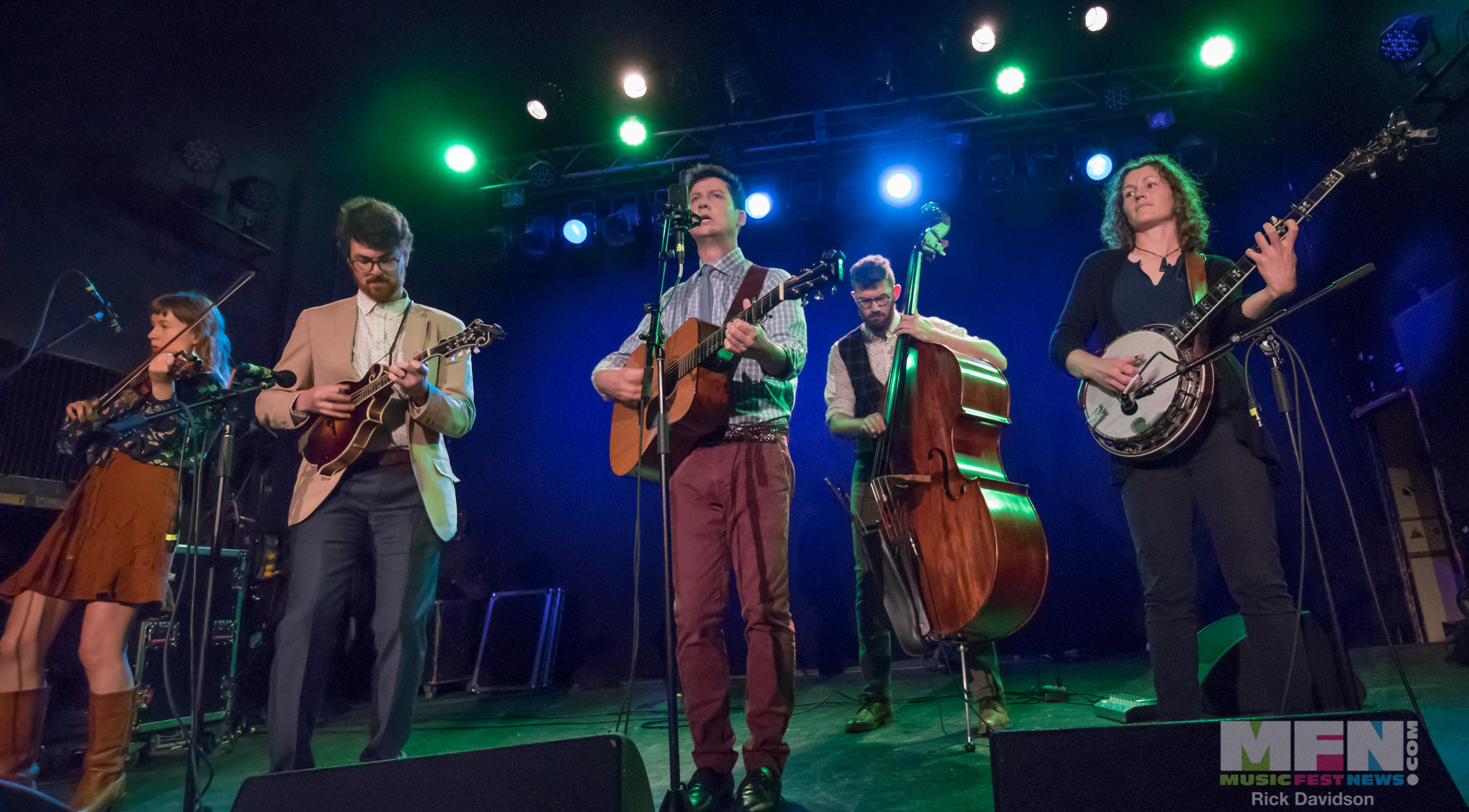
Bill and the Belles are difficult to categorize. They move swiftly from old time folk ballads to original songs, but all cloaked in a vintage sound with classic harmony parts. Not really a bluegrass band….more of a pre-bluegrass band, and very entertaining.
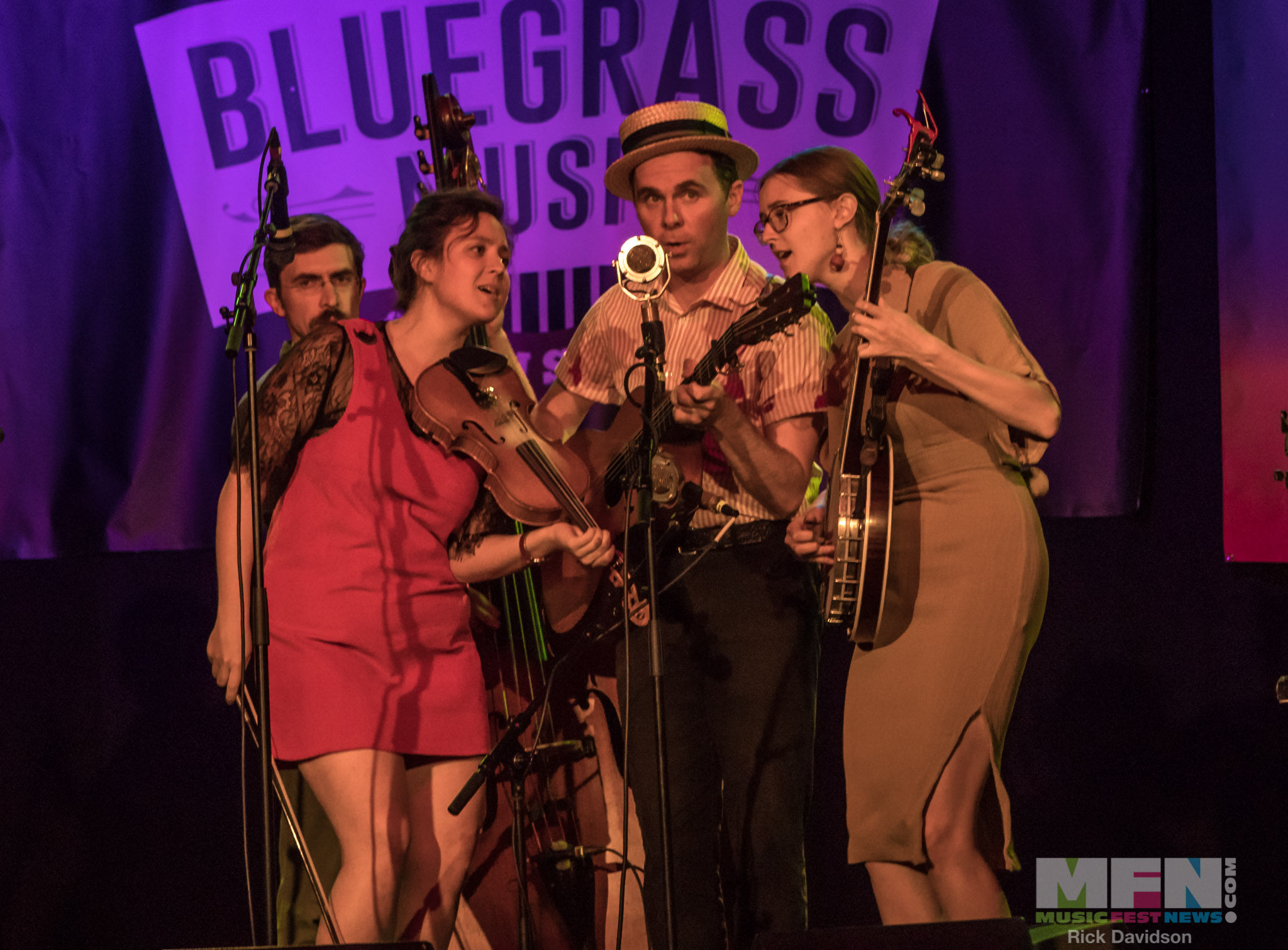
Rapidgrass is a band from Colorado making their first visit to the IBMA. Led by Mark Morris, with blistering hot mandolin player Alex Johnstone, they made a huge impression on the crowd at the Lincoln Theater during the Ramble.
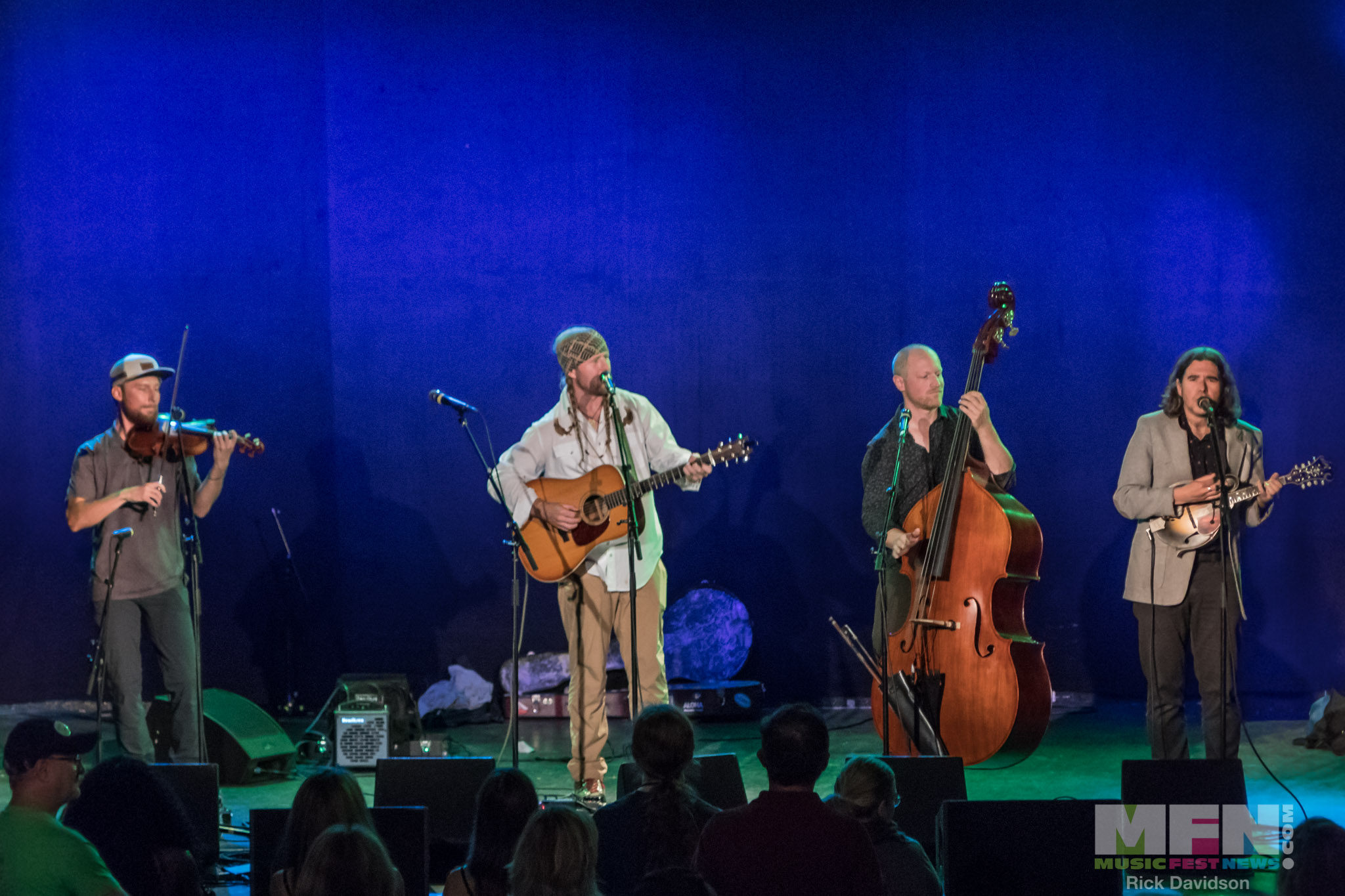
Many other bands caught my attention…Red Wine, a well-known Italian bluegrass band (disconcerting at first to hear bluegrass sung in Italian, but they mixed it up a bit); Special Consensus, a fine traditional band that’s been popular for many years; and the Gina Furtado Project, a progressive band with masterful playing by Furtado (who was nominated for Banjo Player of the Year) and her band. Love Canon, a Boston-based band, does remarkable covers of ’80s pop and rock songs, from the Allman Brothers to Cindy Lauper, and they do them well.
The Awards Show
Held at the Duke Progress Performing Arts venue, the awards ceremony was broadcast live over Sirius and many other participating radio stations. Hosted by Jim Lauderdale and Del McCoury, it featured some great performances by bands (the Earls of Leicester and Joe Mullins and the Radio Ramblers) and also some organized bands put together for the show. The opening number included Michael Cleveland, Sierra Hull, Molly Tuttle, Ned Lubrecki, and Justin Moses backing up Jim Lauderdale. One moving moment came when three of the four original Kentucky Colonels (Roland White, Leroy Mack and Roger Bush) played “If You’re Ever Gonna Love Me,” one of their classic songs. A video was played of their performance on the Andy Griffith show with Clarence White, who died tragically in 1973 at the age of 29. Others entered into the Hall of Fame along with the Colonels included Mike Auldridge, the late dobro master with the Seldom Scene, and Bill Emerson, ground-breaking banjo player who co-founded the Country Gentlemen.
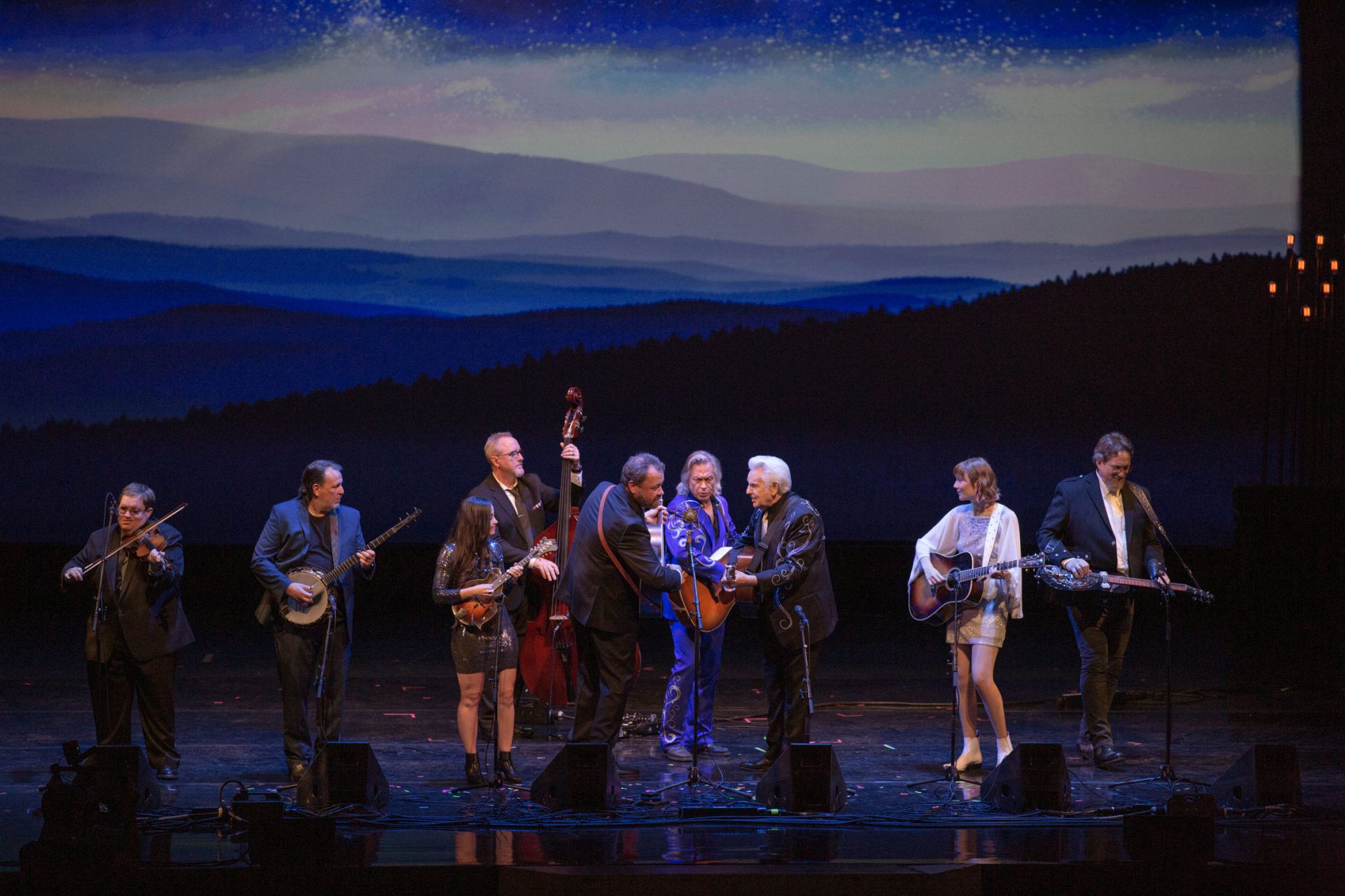
Billy Strings, who wasn’t able to be present, won both the New Artist of the Year award and the Guitar Player of the Year. Kristin Scott Benson, banjo player for the Grascals, took home the Banjo Player of the Year award. Host Del McCoury won Album of the Year for his Del McCoury Still Sings Bluegrass and the Song of the Year went to “Thunder Dan” by Sideline. Michael Cleveland’s band Flamekeeper won Instrumental Group of the Year and Michael won Fiddle Player of the year, continuing a four-year streak for that award. Joe Mullins and the Radio Ramblers took home Entertainer of the Year honors, Sister Sadie was the Vocal Group of the Year, and Claire Lynch won the Gospel Recording of the Year. The Bass Player of the year and Instrumental Recording of the Year honors went to Missy Raines for her choreographed song featuring three bass players (Missy, Michael Bub and Todd Phillips) passing the bass around and never missing a beat. Two traditional players took home the Dobro and Mandolin awards, Phil Leadbetter and Alan Bibey, and Russell Moore, longtime lead singer with IIIrd Tyme Out, took home the Male Vocalist award.
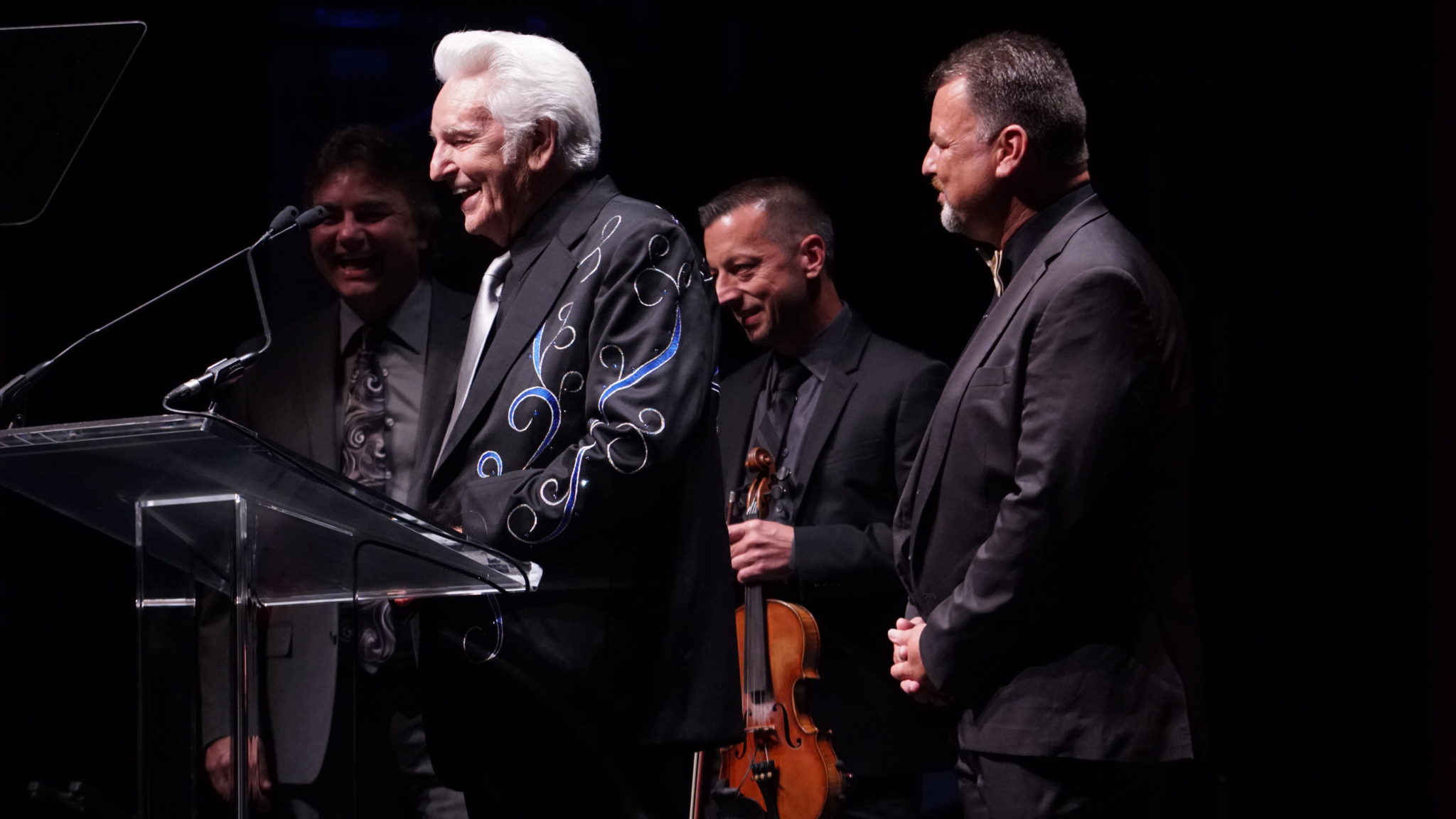
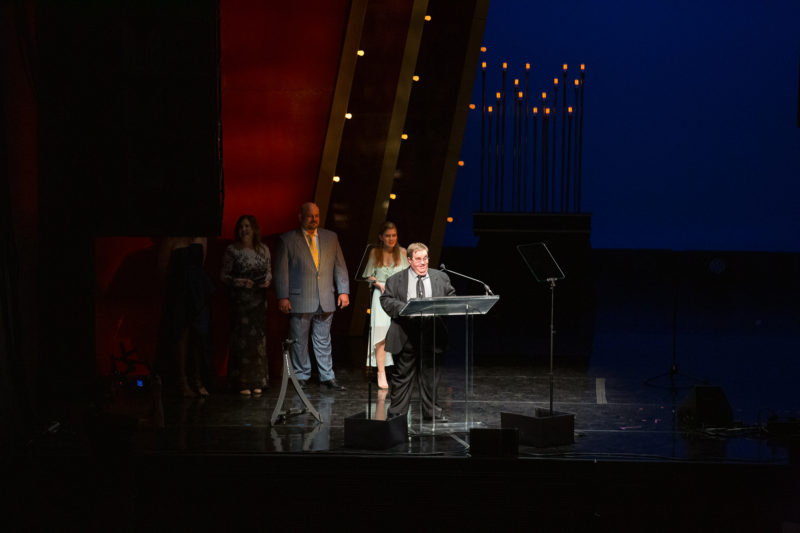
It was an amazing week full of music. It was everywhere…the Marriott, next door to the Convention Center, was a hotbed of spontaneous jam sessions…in the lobby, hallways, elevators, (entire floors of the hotel were listed as Picking Floors) and conference rooms. While the music has grown exponentially since the ‘70s, the passion and commitment to the music was evident everywhere you looked. And the most promising thing was the number of young children who are already jamming and performing. The efforts by the IBMA to support young people (providing several rooms restricted to jams for people under twelve and a Youth Stage for performers, for example) have resulted in a secure future for this music. I spent some time with Anni Beach, who received the mentorship award for a program she started in Arizona in her own home. She invited neighborhood children to learn about bluegrass, and it has grown into a blueprint for similar efforts across the country. She’s inspiring many to do the same. With that kind of commitment the music is going to be fine. And I’m already resting up for next year’s sessions.
Website

